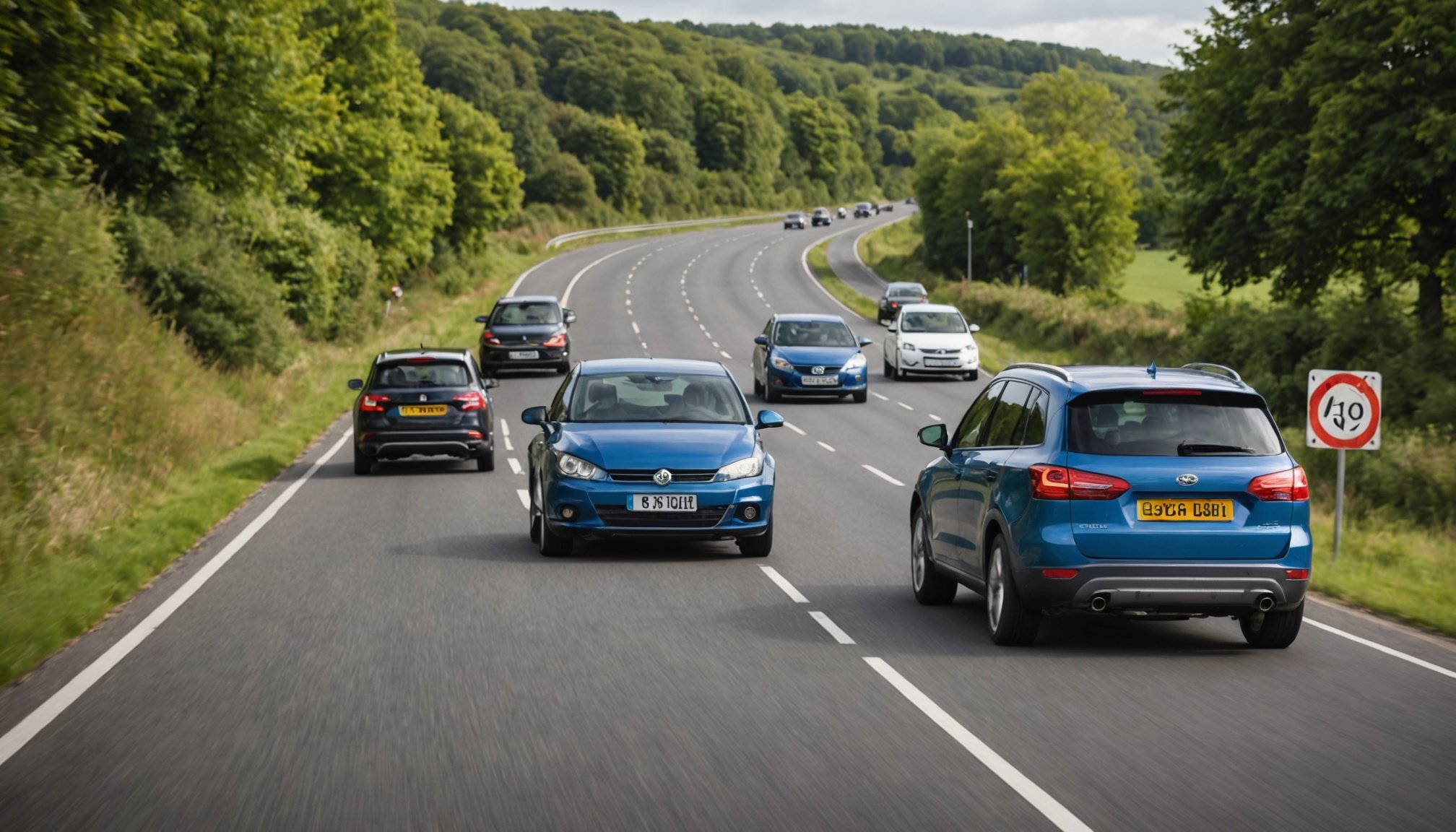Aggressive driving can escalate quickly, leaving even the calmest drivers feeling rattled. Understanding how to manage dangerous behaviors on UK roads not only protects your safety but can also reduce stress levels. This guide offers practical strategies to help you stay composed and assertive when facing road rage. Learn to recognize triggers, employ de-escalation techniques, and focus on maintaining your well-being amidst chaotic traffic situations. Equip yourself with the skills needed to turn aggression into calm assertiveness, making your journeys more enjoyable and secure.
Understanding Road Rage in the UK
Road rage in the UK is a significant concern that affects many drivers. It refers to aggressive driving behaviours that stem from emotional reactions to perceived slights or frustrations on the road. The prevalence of road rage is notable, with numerous incidents reported annually, highlighting its impact on road safety.
In the same genre : How to maintain your car’s engine during cold UK winters?
Aggressive driving often manifests in various forms, including tailgating, excessive honking, or overtaking dangerously. Such behaviours are typically triggered by common scenarios like traffic congestion, slow-moving vehicles, or even minor mistakes by other drivers. These situations can lead to heightened emotional reactions, causing drivers to act impulsively and aggressively.
The psychological impact of road rage on drivers can be profound. Experiencing or witnessing aggressive driving can lead to increased stress, anxiety, and even fear while on the road. For some, the emotional reactions can escalate, affecting their overall mental well-being and potentially leading to more severe consequences. Understanding the triggers and emotional responses associated with road rage is crucial for developing strategies to manage and mitigate these behaviours. By addressing the root causes and promoting emotional control, drivers can contribute to safer and more harmonious road environments.
Topic to read : What are the guidelines for using electric scooters in the UK?
Practical Strategies for Managing Emotions
Managing emotions effectively is crucial for maintaining emotional control while driving. Techniques for calming down can prevent road rage from escalating. One effective approach is deep breathing. By taking slow, deep breaths, drivers can reduce tension and promote relaxation. This simple practice can help in regaining composure during stressful situations.
Incorporating mindfulness into driving habits is another powerful strategy. Mindfulness encourages drivers to remain present and aware of their emotional state, allowing them to recognise and address anger before it spirals out of control. Practising mindfulness can lead to more thoughtful reactions and improved emotional regulation.
Positive self-talk is also beneficial in counteracting anger. By consciously replacing negative thoughts with affirming ones, drivers can shift their mindset from frustration to calmness. For instance, reminding oneself that "I am in control" or "I can handle this situation" can decrease the intensity of anger and foster a more positive outlook.
These techniques not only enhance personal well-being but also contribute to safer road environments. By prioritising anger management and emotional control, drivers can create a more harmonious driving experience for themselves and others.
Staying Safe: Personal Safety Measures
Navigating the roads with a focus on personal safety is paramount, especially when faced with aggressive drivers. Adopting defensive driving techniques can significantly reduce the risk of confrontations. One of the best practices is maintaining a safe distance from aggressive drivers. By keeping ample space, you allow yourself more time to react to sudden movements, thereby enhancing your safety.
Avoiding eye contact is another crucial strategy. Engaging with an aggressive driver can escalate tensions, so it’s wise to keep your focus on the road ahead. This simple action can prevent misunderstandings and de-escalate potential conflicts.
If you find yourself confronted by an aggressive driver, it’s essential to remain calm. Do not respond to provocations. Instead, continue driving safely and, if necessary, change your route to avoid further interaction. If the situation persists and you feel threatened, safely pull over in a public area and contact authorities.
Personal safety and defensive driving are intertwined. By prioritising these measures, drivers can protect themselves and contribute to a more peaceful driving environment. Remember, the goal is to avoid confrontation and ensure your journey remains as stress-free as possible.
Understanding UK Driving Laws Related to Aggressive Driving
In the UK, driving laws are designed to maintain order and safety on the roads, particularly concerning aggressive driving. Aggressive driving behaviours, often associated with road rage, can lead to severe legal consequences. The law categorises these behaviours under offences such as dangerous driving, careless driving, or using a vehicle in a dangerous condition.
Penalties for road rage can include fines, penalty points on your driving licence, or even disqualification from driving. More serious offences, like dangerous driving, can result in imprisonment. The severity of the penalty often depends on the nature of the incident and its impact on road safety.
If you witness or experience aggressive driving, it's crucial to report the incident to the authorities. You can do so by noting down important details like the vehicle's registration number, the location, and the nature of the aggressive behaviour. This information can be reported to the local police, who will investigate the matter further.
Understanding these UK driving laws and the associated penalties helps drivers recognise the importance of maintaining composure on the roads and adhering to legal standards, thereby promoting safer driving environments.
Resources for Further Help and Support
Navigating road rage can be challenging, but numerous resources for drivers are available to provide assistance and guidance. These resources often include organizations and helplines specifically designed to support drivers experiencing road rage.
Support for road rage can be found through recommended organizations such as the AA and RAC, which offer advice and assistance for managing driving-related stress. Helplines like the Samaritans provide a listening ear for those needing someone to talk to about their experiences and emotions on the road.
For those seeking more structured help, driving education programs focusing on anger management are available. These courses aim to equip drivers with the skills needed to handle stress and frustration effectively. They often cover techniques like emotional regulation and stress reduction, providing practical tools for maintaining composure behind the wheel.
Real-life success stories and testimonials highlight the effectiveness of these resources. Many drivers have overcome road rage issues by participating in these programs, sharing their journeys of transformation and newfound calmness while driving. By tapping into these resources, drivers can find the support they need to foster a safer and more harmonious driving experience.











